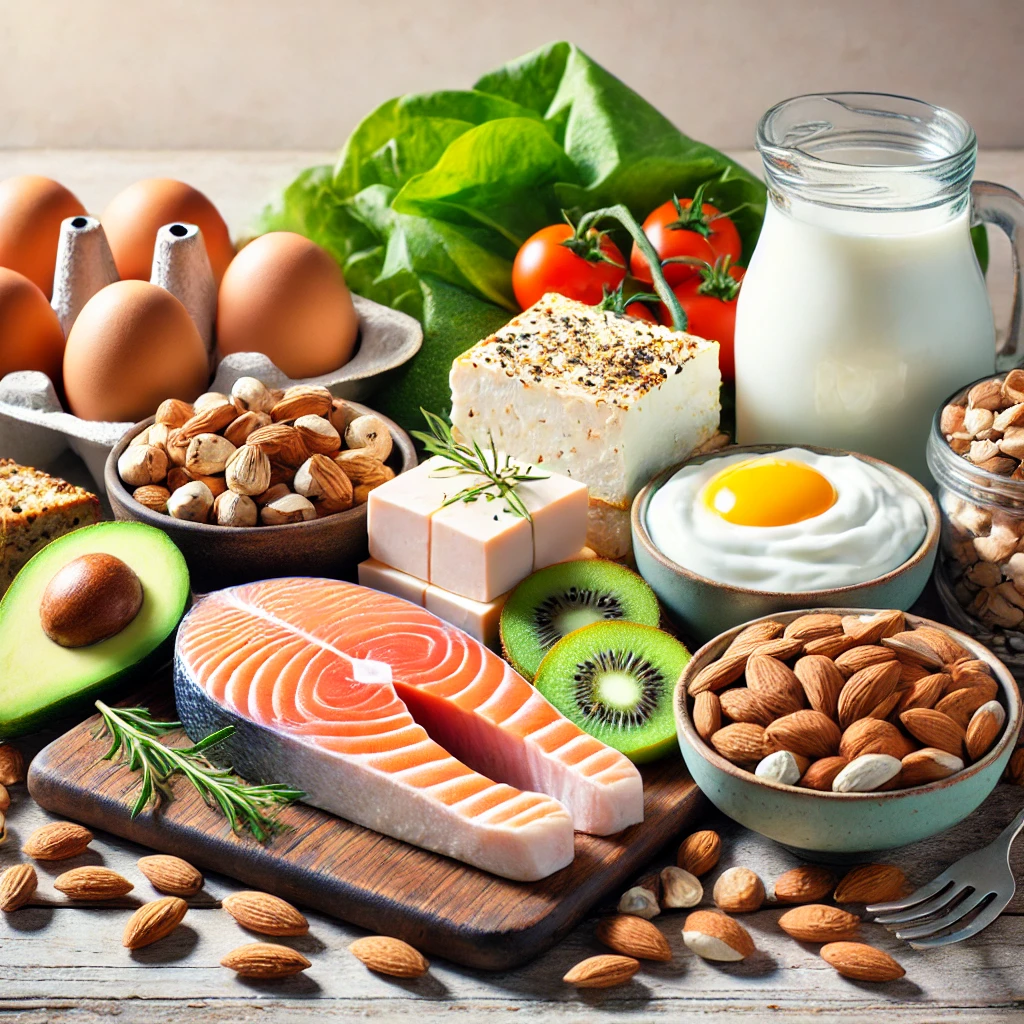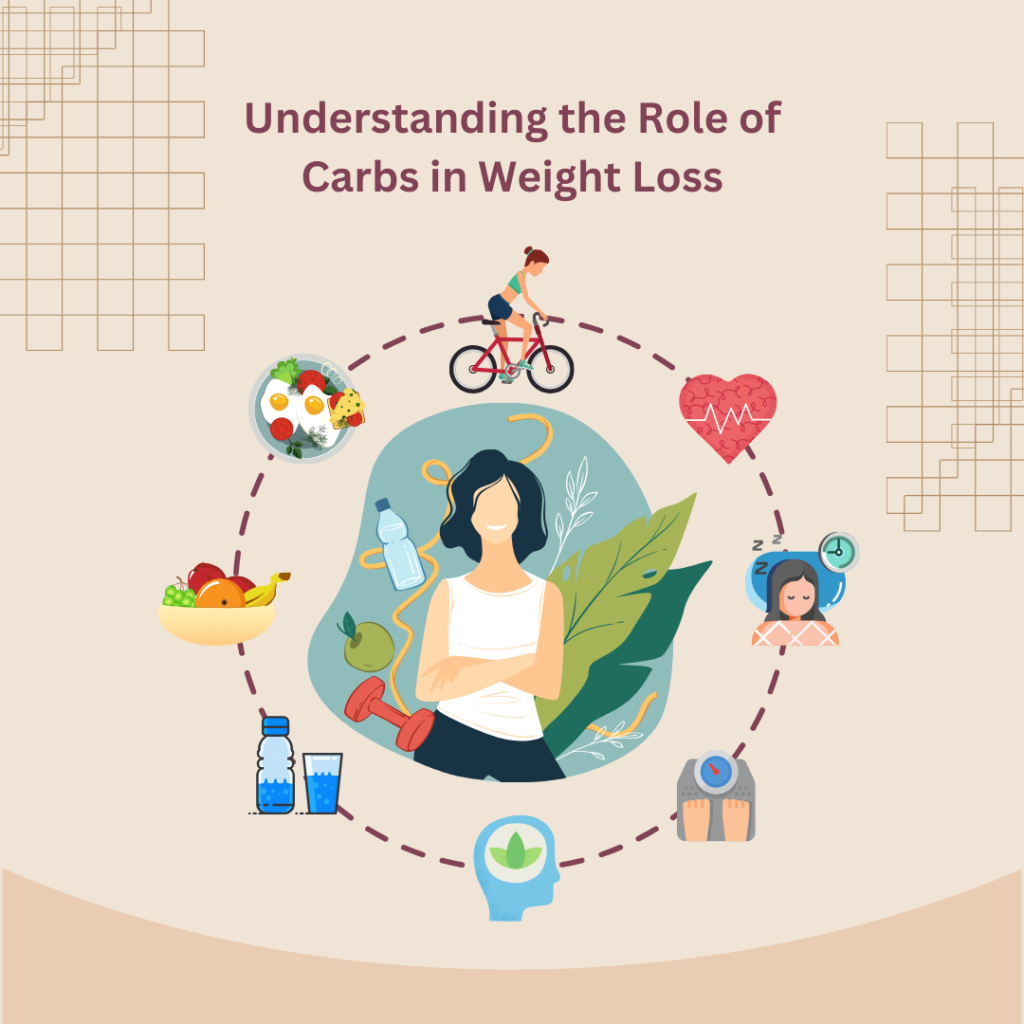When it comes to weight loss, many people focus solely on cutting calories and increasing physical activity. However, one crucial aspect that’s often overlooked is protein intake. Protein is a powerful nutrient that plays a key role in weight management by promoting fat loss, muscle preservation, and overall satiety. In this article, we’ll dive into the science behind protein’s role in weight loss and explain why it’s an essential component of a successful weight loss plan.
1. How Protein Aids Weight Loss
Protein offers multiple benefits that make it a vital part of any weight loss strategy:
- Increases Satiety and Reduces Appetite
- Protein helps you feel fuller for longer, which can lead to reduced overall calorie intake. It does this by regulating hunger hormones like ghrelin and increasing levels of peptide YY, a hormone that makes you feel full (National Institutes of Health).
- Boosts Metabolism
- The thermic effect of food (TEF) refers to the energy used to digest and metabolize food. Protein has a higher TEF compared to fats and carbs, which means your body burns more calories when processing protein-rich foods (American Journal of Clinical Nutrition).
- Preserves Lean Muscle Mass
- During weight loss, the goal is to lose fat while retaining muscle. Protein is essential for muscle repair and growth, which helps you maintain a lean, toned physique even as you shed pounds (Journal of the International Society of Sports Nutrition).
- Reduces Cravings and Late-Night Snacking
- Consuming adequate protein throughout the day can help reduce food cravings by stabilizing blood sugar levels and preventing spikes that lead to unhealthy snacking (National Library of Medicine).
2. How Much Protein Do You Need for Weight Loss?
The amount of protein required for weight loss varies depending on your weight, activity level, and specific goals. However, a general recommendation is to consume 0.8 to 1.2 grams of protein per pound of body weight. For example, if you weigh 150 pounds, you should aim for 120 to 180 grams of protein per day to optimize weight loss and preserve muscle mass (National Institutes of Health).
3. Best Sources of Protein for Weight Loss
It’s important to include a variety of protein sources in your diet. Here are some of the best protein options for weight loss:
- Lean Meats: Chicken breast, turkey, lean beef, and pork tenderloin are all excellent sources of high-quality protein that are low in fat.
- Fish and Seafood: Salmon, tuna, and shrimp are packed with protein and healthy fats, making them great for weight loss.
- Eggs: Rich in protein and nutrients, eggs are an inexpensive and versatile protein option.
- Plant-Based Proteins: Lentils, chickpeas, quinoa, and tofu provide ample protein for those following a vegetarian or vegan diet.
- Dairy Products: Greek yogurt, cottage cheese, and low-fat milk are high in protein and can be easily incorporated into meals and snacks.
4. Sample High-Protein Meal Plan for Weight Loss
Here’s a sample meal plan that emphasizes protein to support weight loss:
Breakfast: Scrambled eggs with spinach and a side of turkey bacon
Lunch: Grilled chicken salad with mixed greens, cucumbers, tomatoes, and a light vinaigrette
Snack: Greek yogurt with a handful of almonds
Dinner: Baked salmon with quinoa and roasted Brussels sprouts
Snack: Cottage cheese with sliced strawberries
This meal plan provides a healthy balance of lean proteins, fiber, and healthy fats to keep you satisfied and energized throughout the day.
5. Protein and Exercise: A Winning Combination
Incorporating regular exercise, especially strength training, alongside a high-protein diet is crucial for maximizing weight loss results. Strength training helps build lean muscle, and protein supports muscle recovery and growth. By combining these two factors, you’ll not only burn fat but also achieve a toned, fit appearance (Journal of Applied Physiology).
6. Conclusion
Protein is an essential nutrient for weight loss because it helps reduce appetite, boosts metabolism, preserves muscle mass, and reduces cravings. By incorporating protein-rich foods into your meals and pairing them with regular exercise, you can accelerate your fat loss while maintaining a healthy, lean body. Whether you’re just starting your weight loss journey or fine-tuning your approach, make sure protein is a cornerstone of your diet.
Resources:
- National Institutes of Health
- American Journal of Clinical Nutrition
- Journal of the International Society of Sports Nutrition
- National Library of Medicine
- Journal of Applied Physiology


